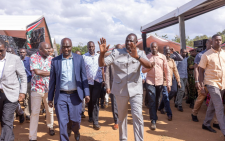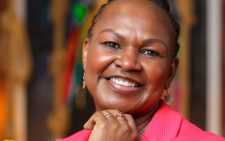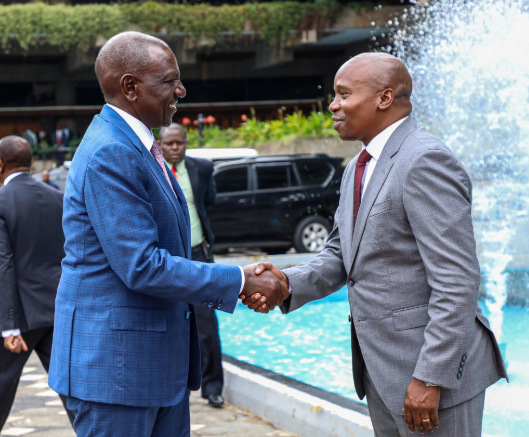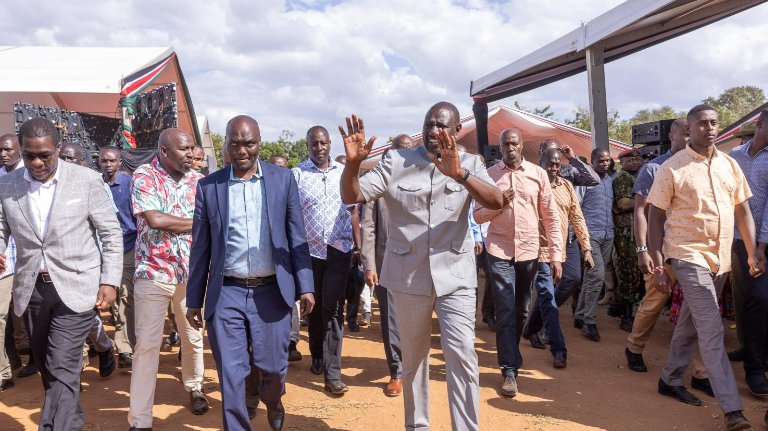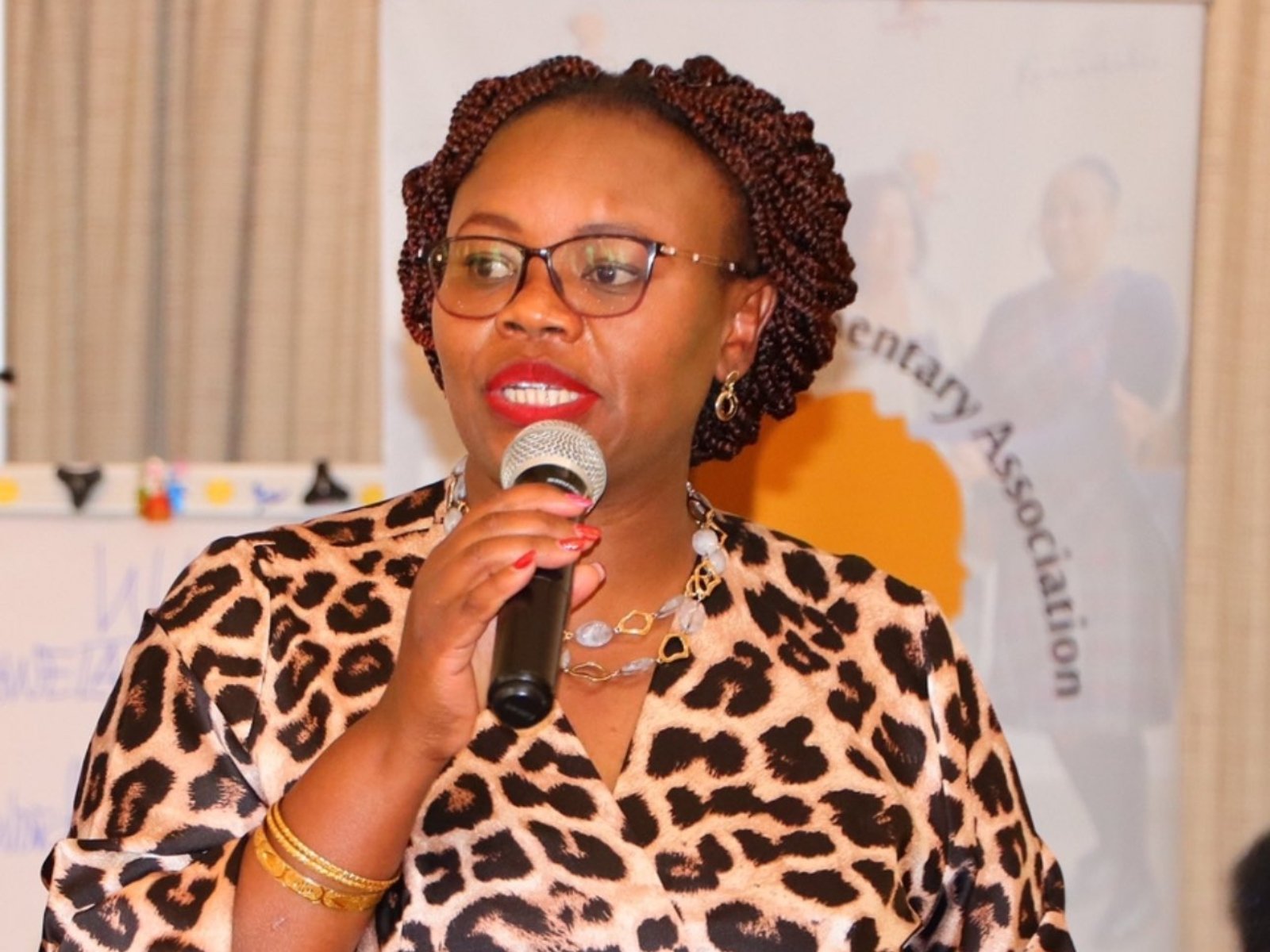Battle for four regions that hold key to State House
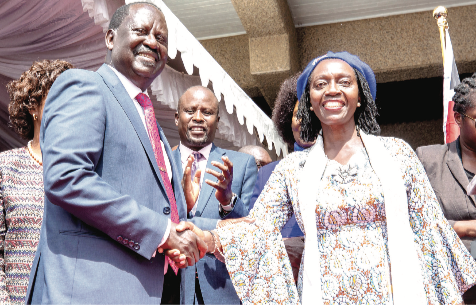
The nomination this week of presidential running mates ahead of the August 9 State House race by both Raila Odinga and William Ruto has officially kick-started the supremacy battle for the soul of swing vote regions with the campaign pendulum swinging towards the populous Mt Kenya, Nairobi, Western Kenya and Coast.
Collectively, the four regions control an estimated 12,290,079 votes out of the 22 million registered electors. That means whoever controls the majority of votes in these regions stands a better chance of winning the presidency.
Mt Kenya region accounts for an estimated 5.6 million votes. The political dynamics in the region could change after Raila, the Azimio-One Kenya Coalition candidate and Ruto, the Kenya Kwanza Alliance picked their running mates from the region (see story on Page 8).
Nairobi has 2,505,199 votes while Western Kenya has 3.2 million and Coast region 1.3 million votes.
Ethnic bloc
Communities around Mt Kenya form the most populous ethnic bloc followed by their counterparts from Western both nationally and in the capital city. This dynamic informed the move by Raila to pick regional point-men like Peter Munya, Wycliffe Oparanya and Kenneth Marende to spearhead his campaigns there with Martha Karua as his running mate. This was in response to Ruto’s choice of Musalia Mudavadi, Moses Wetang’ula and Rigathi Gachagua as his point-men in Western and Cental regions respectively.
The voting patterns of the two communities are considered crucial in deciding the outcome of this years’s election; the more reason why both the Azimio and KKA formations are keen to bag them.
On Sunday, Ruto picked Gachagua, the Mathira MP, to deputise him after more than 35 hours of haggling over his suitability while Raila settled for Karua, the former Gichugu MP and Narc Kenya leader on Monday.
“It is a very interesting game. Whoever hits the ground in earnest is the one who will reap big in those areas. It is a tight race and the stakes are high. However, their tactics are not going to be different,” said Timothy Vikiru, a political commentator and former CEO of Nacico.
While making the declarations, both Ruto and Raila gave pointers to how their respective governments would be shaped, with mind games taking centre-stage in the fashion of their partial choices that mostly targeted Mt Kenya and Western.
The choices have also played out in Nairobi where Azimio has picked a governor aspirant from Mt Kenya region while Kenya Kwanza has picked an aspirant with Western roots.
Today, Raila is expected to broaden his campaign team by naming regional leaders and those who will head the different sections in the team such as the women and youth leagues.
30 per cent
In a pre-election agreement with Mudavadi, the Amani National Congress (ANC) leader and Wetang’ula of Ford Kenya, Ruto indicated he would reserve the position of Chief Cabinet Secretary to the ANC leader in addition to various ministries that will fall under the umbrella of Interior and National Co-ordination.
Wetang’ula, the Bungoma Senator, would be handed the position of Speaker of the National Assembly if the alliance wins.
Besides the direct slots, ANC and Ford Kenya have also been promised 30 per cent of government positions if KKA forms government. The three leaders agreed that if elected, their government would prioritise completion of existing, incomplete or stalled bitumen road projects within the counties where both ANC and Ford Kenya parties have a large following.
However, not everyone believes this formula will work in Ruto’s favour.
“This is a mind game which Kenya Kwanza has already lost. The people of Western are going to be disappointed because Mudavadi was not named running-mate as they hoped. They may therefore not vote for Kenya Kwanza in large numbers,” said Colonel (Rtd) Benjamin Mwema, the DAP-K Executive Director.
DAP-K is one of the parties allied to Azimio and is hoping to capitalise on a poor showing by Mudavadi and Wetang’ula in Western.
Raila, on the other hand, has promised the post of Chief Cabinet Secretary to Wiper Leader Kalonzo Musyoka, who lost out in the race for running mate. The offer is meant to assuage the lower Eastern voting bloc in his backyard and lock out Ruto from making inroads there.
Although Kalonzo turned down the offer, Kitui Governor Charity Ngilu yesterday asked him to reconsider. Like Kalonzo, Ngilu comes from the lower Eastern region. Raila also promised the seat of Senate Speaker to Marende and the Treasury CS seat to Oparanya to attract the support of Western Kenya voters.
Ruto’s bag of goodies was interpreted by political commentators as aimed at appeasing the populous Western region where both Mudavadi and Wetang’ula hail from with a view to keeping the notoriously divided region within the KKA ensemble. However, the promises made to Oparanya and Marende are likely to change the political dynamics in that region, which has traditionally supported Raila.
Chess board
In the Nairobi governor race, Johnson Sakaja, the KKA aspirant, picked a running mate from the mountain while Azimio’s Polycarp Igathe, settled on Prof Philip Kaloki as his running mate. Kaloki is from lower Eastern, which has a sizeable number of voters in Nairobi. Sakaja picked James Muchiri, a banker.
Both chess board moves are meant to counterbalance the complex matrix for the control of the capital.
In the Senate race, Azimio has ODM secretary-general Edwin Sifuna – who has Western roots – as its candidate while KKA has former Starehe MP Margaret Wanjiru, who has roots in Mt Kenya.
For the Woman Rep seat, Raila settled for the incumbent, Esther Passaris whereas Ruto identified nominated Senator Millicent Omanga for the role. Again, this will be a battle that could be decided by ethnic configurations.
Land question
A similar battle is expected to unfold at the Coast, where Ruto has in recent years lured to his side regional leaders like Aisha Jumwa and, last week, Kilifi governor Amason Kingi, who has been supporting Raila. Kingi ditched Azimio to join Kenya Kwanza, citing frustration and lack of consultations. Ruto said he would spearhead the thorny issue of land reforms in the region.
As a counterbalance, on Monday, Raila proposed Mombasa Governor Ali Hassan Joho as CS for Lands. The battle will now be decided by voters from the region which, though lacking in the huge numbers of Central, Nairobi and Western, is important for national unity and for parties to project inclusion in the sharing of the national cake.
“Coast is happy because they were not expecting anything. They shall be happy with the ministerial position,” said Mwema.
Both Raila and Ruto are largely expected to carry the day in their strongholds – Nyanza and Rift Valley respectively – leaving the four regions as the kingmakers to who will decide who gets the keys to State House come August 9.
